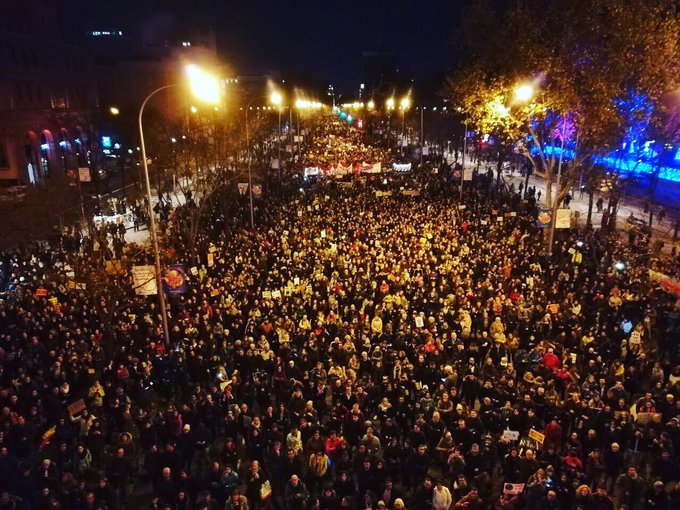By Lenin Tinashe Chisaira in Madrid , Spain
(Environmental Legal Correspondent)
Ten simple things to make anyone in Africa more conversant with the ongoing UN Climate Change Conference (COP25) in Madrid, Spain without getting overwhelmed
Madrid, Spain is the latest frontier in the desire to reduce greenhouse gas emissions and probably save Earth and vulnerable communities and species from droughts, disappearing islands, rising water levels, extinction and climate-related diseases like malaria and cholera. Here I have compiled some ten points on the United Nations Climate Change Conference (Cop25 which I am attending in Madrid, Spain, with a particular emphasis on African interests.
- The world in 2019 has seen cyclones, social justice protests, species extinction, migrations and extreme weather changes. Africa has seen an increasing number of migrants (climate refugees) crossing over to Europe. The primary cause is climate change. Southern Africa also suffered through Cyclone Idai and heatwaves.
- Parties to the United Nations Framework Convention on Climate Change (UNFCCC) meet each year, usually around December, to discuss climate change, adopt resolutions on various aspects of climate change such as mitigation, adaptation and financing. From 2-13 December 2019, parties will hold their 25th Conference of the Parties in Madrid Spain. CoP 24 was held in Katowice, Poland and Glasgow (Scotland, United Kingdom) will host Cop26. Africa has hosted 4 of the 25 CoPs held so far. These were as follows:
- CoP7 Marrakech, Morocco (2001)
- CoP12 Nairobi, Kenya (2006)
- CoP17 Durban, South Africa (2011)
- CoP22 Marrakech, Morocco (2016)
- The African States are listed in their regional group called the African States. The other States fall into Asian States, Eastern European States, Latin American and the Caribbean States, and the Western European and Other States (The “Other States” being Australia, Canada, Iceland, New Zealand, Norway, Switzerland and the United States of America). The African Group of Climate Change Negotiators (AGN) is a body that was established in 1995 at COP1 in Berlin, Germany as an alliance of African member states that represents the interests of the region in the international climate change negotiations, with a common and unified voice. The African States also participate as the Least Developed States as well as the G77 and G77 + China.
- CoP25 was initially scheduled to be hosted by Chile in Santiago. However, this was changed at the last minute. The change came as a result of social unrest in Santiago against the government’s policies. Madrid, Spain offered to rake over as hosts. However, Chile would still preside over the CoP.
- The theme for CoP25 is ‘Time for Action’. The theme for Cop24 in Katowice, Poland was ‘Changing Together’ and focused on the Just Transition principle, that is, change that does not leave fossil workers and other sectors of the society behind. This just transition is a critical issue in Africa and the Global South, where coal mining is rampant.
- The annual CoPs attract an attendance of around 10,000-30,000 people being mainly State Party delegates, admitted international and national non-governmental organisations, observers, media and activists.
- Many voices are increasingly speaking out against coal mining. The UN Secretary-General, Antonio Guterres in a speech at CoP25 said, “In several regions of the world, coal power plants continue to be planned and built in large numbers Either we stop this addiction to coal or all our efforts to tackle climate change will be doomed”. Some African States oppose some of these climate change response measures, for instance, a ban on coal mining. However, African environmental groups such as AIDC, Natural Justice, CNRG and Advocates4Earth have raised concerns over coal mining.
- A significant highlight is usually a march by climate and environmental activists calling on government leaders to be more serious on climate action and reducing greenhouse gas emissions to make sure that global temperatures don’t go beyond 1.5 -2 degrees Celsius above pre-industrial levels. The march for climate at Cop25 will be held on Friday 6 December 2019. Africa activists are usually fewer at such demonstrations as compared to protestors from the Global North.
- CoP25 comes at a time when the Donald Trump administration in the United States has announced plans to withdraw from the Paris Agreement. The Paris Agreement, adopted on 12 December 2015 in France, is an agreement falling within the United Nations Framework Convention on Climate Change (UNFCCC). While the latter is a framework convention which provides the groundwork for specific agreements or protocols, the Paris Agreement outlines the mechanisms for State Parties to deal with greenhouse-gas-emissions mitigation, adaptation, and issues of climate finance. The withdrawal by developed States such as the US has a severe impact on climate finance for developing States in the Global South and Africa.
- 2019 saw massive climate strikes and demonstrations around the globe, especially from school children and young protestors in the Global North such as Greta Thunberg’s Fridays For The Future, the Global Climate Strike, March For Climate and the Extinction Rebellion direct action protests. In Africa, where the impacts of climate change are severe, such demonstrations have been held but at a lesser extent. In Zimbabwe, a Climate March planned by Advocates4Earth was effectively stopped by police citing security concerns.
(Lenin Tinashe Chisaira is an environmental legal correspondent with Africa Legal News and Spiked Media Online and an environmental lawyer with Advocates4Earth)






